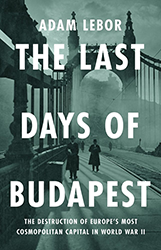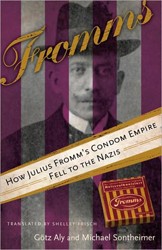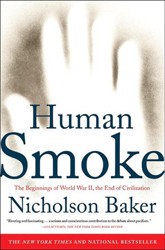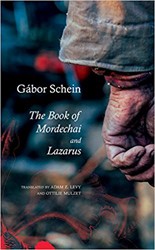This book recounts the tragic story of over 45,000 Hungarian Jewish men conscripted into forced labor battalions that accompanied armed Hungarian units in the invasion of the Soviet Union alongside the forces of Nazi Germany. Fewer than one in five of these forced laborers survived the war. Based on fundamental research by Randolph Braham and others, the story of Hungarian Jewish forced laborers is sketched through extensive use of survivors’ postwar memoirs and testimonies, as well as books by both Hungarian perpetrators and bystanders, along with records of the Hungarian military authorities.
Hungarian Jews were among the most acculturated of East European Jews, having been granted citizenship and civil rights under the old Hapsburg Dual Monarchy. It was quite common for Hungarian Jews, both secular and religiously quite traditional, to see themselves as patriots of their Magyar homeland. Unfortunately, the loyalty was not mutual, for large segments of Hungarian society rejected Jews as inherently alien and destructive inferiors who undermined the economy and identity of Hungary. Recent events in twenty-first century, post-Communist Hungary seem to demonstrate the sturdiness of ancient prejudices.
Most Jewish forced laborers believed in their duty to serve the Hungarian state that denied them the dignity of bearing arms other than shovels and picks. Over and over again, one is shocked by the repeated instances of systemic individual brutality, cruelty, thievery, and sheer evil inflicted on the Jewish forced laborers by their gentile nominal compatriots who blamed the Jews for military failures and took every opportunity to steal from the benighted Jews. Rations were officially limited to the minimum necessary, but in actuality were reduced to a level insufficient to maintain life amid the harshness of Soviet winter. Forced laborers found themselves compelled to bribe officers for their risible rations of watery soup and stale bread, as well as for the privilege to receive letters and parcels from home to which they were formally entitled.
Particularly evocative is the story of the proud Hungarian Jewish Olympic fencing champion Attila Petschauer, persecuted by guards and soldiers who recognized the Jewish Olympian. In January 1943, with the Soviet winter temperature falling to ‑58 degrees Fahrenheit, Hungarian troops tied Petschauer to a tree, naked, and poured water on him. And he froze to death.
The book provides a systematic discussion of how the Jewish forced laborers responded to their predicament, examining how they only vaguely comprehended the overall reality that we now call the Holocaust of European Jewry. These Hungarian Jews did not have access to enough information or perspective to be able to see their own fate as part of the Nazi German campaign to annihilate all the Jews of Europe. This was despite the fact that many of the forced laborers witnessed mass killings committed by the Germans and by their Ukrainian and Hungarian henchmen. This book is at once engrossing and appalling, in its clear and civilized detailing of the catastrophe that befell tens of thousands of Hungarian Jewish fathers, husbands, sons, and brothers, who could not comprehend the fate that consumed their families, friends, and loved ones transported by rail to Auschwitz over the summer of 1944. Index, maps, notes.
Related Content:





